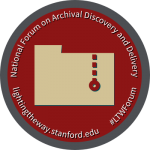
Stanford Libraries SERG/Carpentries Workshop Series
Stanford University is a member organization of The Carpentries, a nonprofit dedicated to teaching foundational skills for research computing skills. This partnership is managed by Dr. Amy Hodge of the Stanford University Libraries, and is open to the entire campus community. Over the past few quarters the Stanford University Libraries have offered the popular two-day Software Carpentry workshops as an open enrollment to anyone on campus. Other campus organizations have also run and will continue to run similar versions of these workshops.






